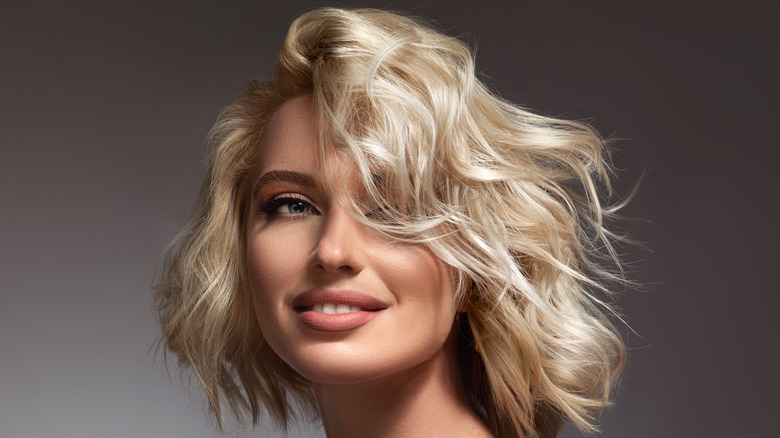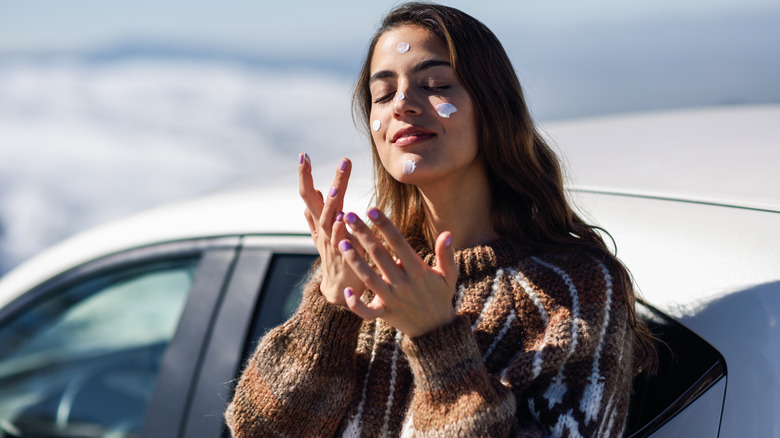Does SPF In Makeup Actually Work?
The minute you step outside, protecting your skin from UV rays becomes your top priority, whether the sun is out in full force or not. You've heard this warning often enough in your life that you've carved out space in your beauty routine for makeup products already infused with SPF. The general consensus is that having SPF built into your makeup knocks out three to-dos from your mental checklist: Dab on sunscreen, perfect your makeup look, and protect your skin health. Now you can calm your inner panic on the days you unintentionally skip out on the sunscreen because you're in a rush, right?
A lot more beauty products on the market today already have SPF in them, including eyeshadows, foundations and lipsticks — because yes, your lips need just as much protection from UV rays as the rest of your skin (via Allure). Though putting SPF in makeup sounds like a simple solution, it's actually a lot more complicated than applying your favorite products and walking out of the door. If beauty products that function like sunscreen sound like a dream come true, that's because their protection may be more fantasy than reality. The question is just how protected are you?
The SPF in your makeup isn't as helpful as you think
Healthcare experts agree that the SPF in makeup does little to prevent skin cancer. Dr. Rachel Nazarian, a New York-based dermatologist at Schweiger Dermatology Group, told Sunday Edit that the amount of sunscreen needed to effectively protect your skin isn't nearly enough. "Having sunscreen in our makeup, including eyeshadow, offers such little protection that it shouldn't be considered sunscreen at all," she explained. "Most people are not applying a thick enough amount of the makeup to achieve the marketed SPF on the label — remember that these ingredients need to be applied 2mg/cm2 [two milligrams of sunscreen per centimeter squared of skin] to achieve the intended SPF" (via Sunday Edit).
Experts recommend re-applying your sunscreen every two hours, which means solely relying on the SPF in your beauty products simply won't cut it. In an interview with Self, Dr. Lily Talakoub, a dermatologist at McLean Dermatology and Skincare Center, further broke down the problem with replacing sunscreen with "SPF-lite" products. "Most do not have any coverage against the UVA rays that will go through your car window, your home windows, goes through all the clouds, the rainstorms, and the snow," she said. "You're failing yourself if you think you're protecting yourself against all UV rays, especially since UVA cause more aging and skin cancer than UVB."
If you can't part with your SPF makeup, a happy compromise is using them in addition to sunscreen for maximum protection.

